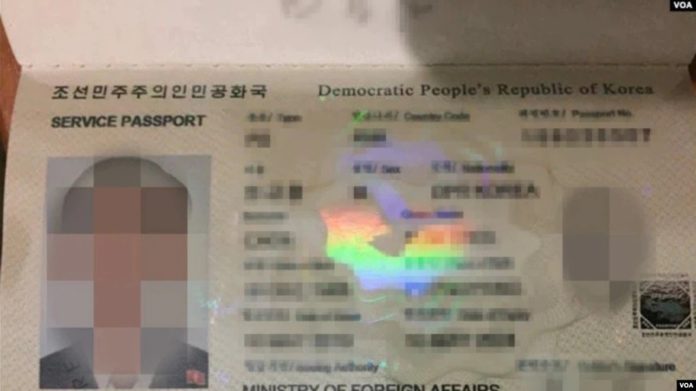This article was originally posted on VOA.
WASHINGTON — A ranking officer in one of North Korea’s elite military cyberwarfare units is being held in an undisclosed location in far eastern Russia after Moscow’s agents thwarted his attempt to defect, according to sources familiar with the matter and documents obtained by VOA’s Korean Service.
Major Choe Kum Chol, a top information technology (IT) specialist in the North Korean People’s Army (KPA), has been held by North Korea’s consulate general in Vladivostok since September after being arrested by Russian police in Razdolnoe, a city about an hour by car from the Pacific Ocean port city. Choe, 33, had been hiding in Razdolnoe to avoid North Korean authorities who had been hunting for him since July when he left his post in Vladivostok after deciding to seek asylum from the Moscow office of the United Nations High Commissioner for Refugees (UNHCR), according to multiple sources in Russia who knew Choe.
VOA’s Korean Service has verified the credibility of sources who provided information on Choe and has been in touch with them for several months. To protect their identities, the service cannot provide further information about them. The sources approached VOA hoping to generate international interest in Choe’s case. They provided a copy of Choe’s passport, screenshots of text messages Choe exchanged with several of them, and other documents.
Vladivostok has long maintained Russia’s connections with North Korea. Despite United Nations prohibitions on employing North Koreans, many still work in the area and send home their ruble wages to a regime starved for hard currency. And, according to Japan’s Kyodo News, a group of North Korean IT experts moved from Hong Kong to Vladivostok to evade United Nations Security Council (UNSC) Resolution 2397 passed in December 2017, prohibiting countries from authorizing work permits to North Korean workers and requiring their departure from overseas jobs by December 2019.
VOA’s Korean Service contacted the UNHCR’s Moscow and Europe regional bureaus as well as the Russian Foreign Ministry and asked if they were aware of Choe’s attempts to seek asylum. Only the Moscow UNHCR office replied, saying Tuesday, “Please note that UNHCR does not provide comments on individual cases.”

Elite education and career
North Korean leader Kim Jong Un said in 2013 that cyberwarfare, along with nuclear weapons and missiles, are an “all-purpose sword” that guarantees the military’s strike capabilities.
The regime selects young students to train them as hackers, according to a report by South Korea’s public media outlet, KBS.
According to Choe’s credentials obtained by VOA’s Korean Service, he was among those selected for elite training. He received his education in Pyongyang, attending the prestigious Geumseong School for middle and high school and Kim Chaek University of Technology for undergraduate and graduate school. North Korea combines middle and high school education in a six-year program.
Most Kim Chaek graduates are assigned to cyberwarfare units to work as hackers.
But even though Choe was an elite member of an elite force, like any other North Korean working overseas, he was under constant surveillance by Pyongyang, first in China and then in Russia.
The computer encryption specialist was assigned to Vladivostok in May 2019, according to VOA’s Korean Service sources, where he worked in a cyberwarfare unit tasked with undertaking intelligence missions while obtaining much-needed hard currency.
The North Korean won is largely worthless on international markets, and international sanctions have reduced Pyongyang’s access to trade that once provided foreign currency.
To read more, please click here.


